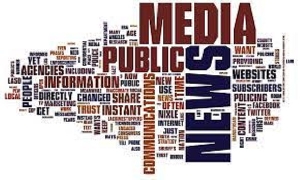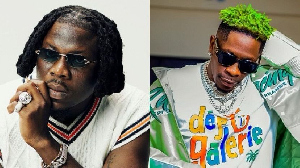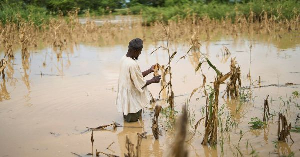The media plays a crucial role in shaping public opinion, fostering dialogue, and holding those in power accountable. In the context of Ghana, the media has a significant role to play in building the Ghana we want together - a prosperous, inclusive, and democratic nation.
First and foremost, the media serves as a platform for information dissemination. It is through the media that citizens are informed about government policies, initiatives, and developments in various sectors. By providing accurate and timely information, the media empowers citizens to make informed decisions and actively participate in the nation-building process.
Furthermore, the media acts as a watchdog, ensuring transparency and accountability in governance. Through investigative journalism, the media uncovers corruption, malpractice, and abuse of power. By exposing such issues, the media helps to hold public officials accountable and encourages ethical behavior. This, in turn, contributes to the creation of a just and fair society.
In addition to information dissemination and accountability, the media also plays a crucial role in promoting national unity and social cohesion. Ghana is a diverse country with various ethnic, cultural, and religious groups. The media has the power to bridge these divides by promoting dialogue, understanding, and respect among different groups. By highlighting commonalities and celebrating diversity, the media can contribute to a more inclusive and harmonious society.
Moreover, the media can act as a platform for public discourse and debate. It provides a space for citizens to express their opinions, concerns, and aspirations. Through talk shows, opinion pieces, and interviews, the media facilitates dialogue between citizens, civil society organizations, and policymakers. This dialogue is essential for democratic governance and ensures that the voices of all citizens are heard and considered.
Furthermore, the media can serve as a catalyst for social change. By raising awareness about pressing social issues such as poverty, gender inequality, and environmental degradation, the media can mobilize public support and action. Through investigative reports, documentaries, and campaigns, the media can shed light on these issues and encourage individuals and organizations to work towards solutions.
Lastly, the media has a responsibility to promote ethical journalism and professional standards. By adhering to principles of accuracy, fairness, and impartiality, the media can build trust with the public. This trust is essential for the media to effectively fulfill its role as a watchdog and information provider.
In conclusion, the media has a critical role to play in building the Ghana we want together. Through information dissemination, accountability, promoting national unity, facilitating public discourse, driving social change, and upholding ethical standards, the media can contribute to the development of a prosperous, inclusive, and democratic Ghana.
It is imperative that media organizations, journalists, and citizens recognize this role and work together to harness the power of the media for the betterment of the nation.
Building the Ghana we want together.
Opinions of Tuesday, 30 January 2024
Columnist: Michael Agbesi Kelly















